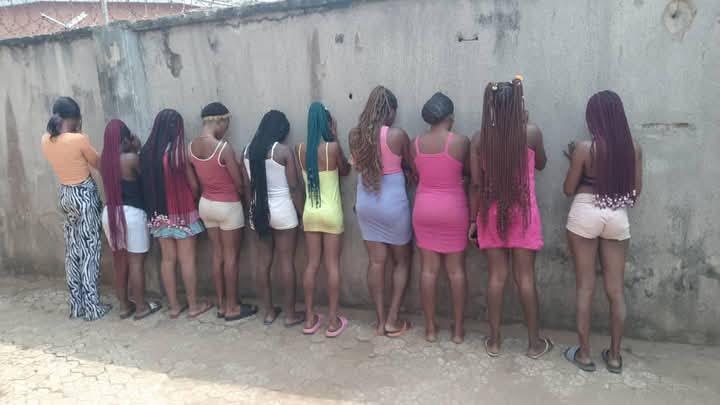Although Mr. Chichetam Okoronta never studied fine and applied art, but the graduate of Information Communication Technology (ICT) at the Federal University of Technology, Owerri, Imo State won the Overall Best Prize, smiling home with a cash prize of N500,000 after the grand finale of the Life In My City Annual Festival (LIMCAF) 2021 held in Enugu. Mr. Okoronta relives, in this interview with Tony Adibe, the experience of the victory that even took him alongside other five top artists to Dakar, Senegal where they met with great artists during a 2-week tour of that country. Excerpts…
Can you recall how you won the overall best prize for 2021 LIMCAF?
First of all, the theme of last year’s edition was “Vision 2020, So Far, So What?” Therefore, I made an artwork that explained that theme perfectly , and after the panel of jury went through it, I was selected among the top 100. And after that phase, we also had to go through another selection. I still qualified for the top 25 best. Then down to the grand finale, so the final jury had to make their selection again. Then we came to the stage and the last part of the event was us being given the award. That was when I was awarded the overall winner. And also, the interesting thing was that it was my first time ever to participate in the LIMCAF competition. So, I was like the ‘first timer’ and also the first winner ever from Imo State because nobody has ever won it from Imo State before. That was one of the most interesting things. Also, it was meant to be 2020 but due to the outbreak of Covid-19 pandemic, the 2020 edition was delayed, and it forced the organizers to merge 2020 and 2021. At the end of the day, I was lucky enough to go home with a prize.
What was the overall prize?
I was given N500,000 cash and also the veteran artist, Prof. El Anatsui had to sponsor us – the top six winners to Dakar, Senegal. We went this year for the Dakar Art Bi-Annual exhibition. We went with different works that we created and exhibited in Dakar. We spent two weeks there, touring Dakar, visiting art galleries, visiting notable artists there and also exhibiting our own works. Also, it ushered me into their art world, being somebody that loves art and I taught myself art. So, visiting Dakar was a great push for me to convince my parents that my passion for art is actually having a headway.
Where did you study and why did you choose to study art?
I studied at the Federal University of Technology, Owerri (FUTO). I studied Information Technology, not actually fine and applied art. My last formal art education was during my JSS3 but then moving forward, I still love art and I always spoke with my colleagues at school concerning art. I also took courses in Technical Drawing in my secondary school and university period. In my first year, I took courses in technical drawing, and I was always doing very well in the course. But during that period, I was also helping people to make their drawings. Then as I got higher in the university, I started honing my skill to be better; it was year after year, I was improving my skill a lot better.
How do you feel coming from Information Technology and “stealing” the show from fine and applied art people?
Laughs… In fact, I should say that an artist is not only someone that studied fine and applied art. I mean just by practicing; you can always teach yourself.
How was the Senegal experience?
I must say it was fantastic. It was very fantastic, getting to meet artists, seeking their views and learning from them. And also, the visit to Senegal helped me to ‘shape up’ and have an understanding of what I was going into and what being an artist is all about. It gave me a wider view of the art scene.
What is your vision of the art world?
Being someone that critically analyses things, I took my thought out in drawing and also relate it with contemporary realities of our time. Learning never ends. Therefore, my vision is that art is an avenue to always learn and teach others. Also, moving forward, over time, art wasn’t actually something that was considered a profession. Hopefully, we will make art more appreciable and also appreciate art better in our country.
What does winning the Overall Best Prize mean to you?
The Igbo have a popular saying that Eto Dike na nke omelu, o mekwa ozo (meaning when you praise a man of honour for a job well done, he would do better!) Winning the best prize made me realize that as much as I’m being recognized, I’m also being pushed to work harder. And since then, I’ve been creating more works and also looking forward to applying for more exhibitions when I see the opportunities.
Do you have some role models in the art world?
Yes. I have some people I draw inspiration from both within and outside Nigeria. Thank God for social media and the internet so I get to see works of people like Arinze Stanley, Ken Nwadiogbu and even artists from outside Nigeria such as Kevin Okafor who is based in London. They use the same medium I use. I also draw a lot of inspiration from their kinds of works and the way they present their works.
Can you tell us about your background?
I ‘m from Mbaitolu in Imo State but the village is Okwuogba precisely. I come from a family of four. I’m the only son with three ladies. My parents are also alive and they are living with us.
Now, did you take after your father or mother when it comes to art?
That has always been a very interesting question because as the whole thing started playing out, my dad had to tell me a story about when he was younger, that he also loved art a lot. And that he did some drawings which he didn’t take to the upper level. And my mum, too, also displays some level of art in the way she interprets my works. Also, I see art in my siblings. My elder sister is a make-up artist and also the last born makes very beautiful and amazing cakes. So, in the designs on the cakes, you see some elements of art playing out very well. The way she chooses her colour, for the icing; the way she designs. These days, it’s not just about doing the cake, but you will see a whole lot of designs that come into play during decoration on the cake. That has shown me that there is art in the family.
Have you faced any challenge while doing your art?
If I say I have not faced a challenge, it would be unrealistic. First of all, coming from the stereotype that artists are poor; that also makes people shy away from being artists. But then it is just a perspective, and it’s not always true that artists are not rich; much as people are ready to accept art and how art should be. Also, there is the challenge of me attempting to acquire art materials…Like in Owerri, capital of Imo State, materials may not be readily available, and dealers on art materials are quite few in Owerri. That is one of the challenges. However, I have to get materials from Lagos and even outside of Nigeria. But above all these challenges, art materials are very expensive. However, we still have a way to use what we have to get what we need.
Coming back to your work which won the overall best LIMCAF prize; what was the focus of the message?
The focus of the message was the fact that since “Vision 2020” has been promised, dating back even before the era of former President Goodluck Jonathan as the President of Nigeria, there had been a lot of promises by our leaders; that this would happen at so and so time but at the end of the day, nothing happens. If you try to evaluate all the promises, you would realize or discover that they have not met them even halfway. And that’s not good.
On the artwork that won the overall best, you will see where I kind of juxtaposed the head of a figure with a magnifying glass reading a paper, written the ‘vision’ . But then you would see the ‘vision’ clearly but then you can see the year clearly. Therefore, we are still hoping to know when the 2020 is coming or whether it has come and gone, in relating it to the ‘vision 2020’ and actualizing it.





